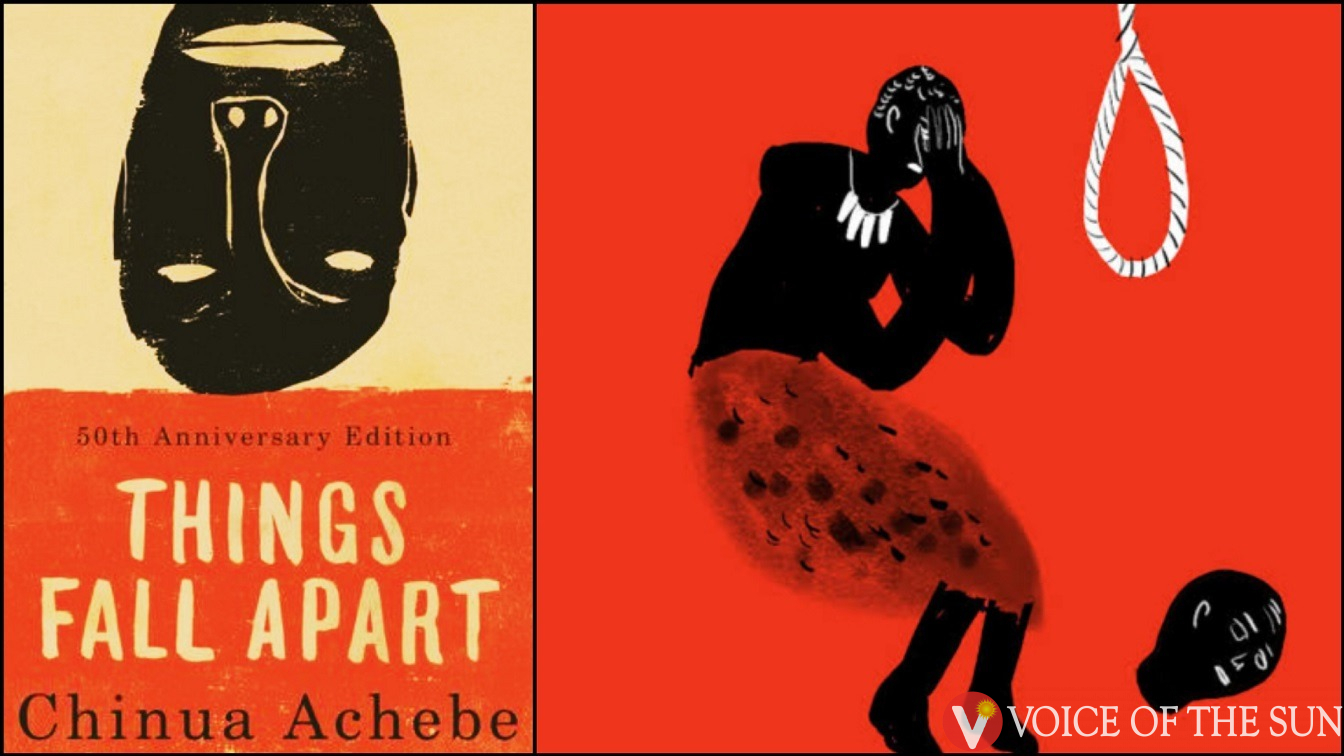Okonkwo’s fear of weakness is a central theme in Chinua Achebe’s novel “Things Fall Apart”. Okonkwo is a proud and hardworking man who is deeply afraid of being seen as weak or effeminate, traits that are seen as undesirable in his Igbo culture. This fear drives Okonkwo to be extremely aggressive, controlling, and even violent in his interactions with others. He sees any sign of weakness as a threat to his reputation and honor, and as a result, he refuses to show any vulnerability or emotional openness.
This fear ultimately leads to Okonkwo’s downfall in several ways. First, his fear of weakness causes him to lash out at those around him, including his wives and children, leading to strained relationships and resentment. This puts him at odds with the communal values of his society, where cooperation and compromise are highly valued.
Second, Okonkwo’s fear of weakness leads him to make rash decisions, such as killing the messenger from the white man’s government, which ultimately results in his suicide. This act goes against the advice of the village elders, who urge caution and negotiation in the face of colonialism.
Finally, Okonkwo’s fear of weakness blinds him to the changing times and the inevitability of colonialism. He refuses to adapt to the new reality and instead insists on maintaining the traditional ways of his society, even when they no longer make sense in the face of new challenges. This stubbornness ultimately leads to his suicide when he realizes that his world has changed irreversibly.

Okonkwo’s fear of weakness can be traced back to his own childhood and his relationship with his father, Unoka. Unoka was a weak and lazy man who failed to provide for his family, which caused Okonkwo great shame and embarrassment. Okonkwo resolved to be the opposite of his father and to be a strong and successful man who would earn the respect and admiration of his community. However, his fear of being seen as weak or effeminate led him to be overly aggressive and to suppress his emotions and vulnerability.
This fear also causes Okonkwo to be dismissive of his son Nwoye, who is more sensitive and introspective than Okonkwo would like. Nwoye’s interest in the Christian missionaries and their message of love and forgiveness is seen by Okonkwo as a sign of weakness and betrayal. This causes a rift between the two, and Nwoye ultimately decides to leave his father and join the missionaries.
Okonkwo also kills Ikemefuna, whom he treated as his own child; just because he didn’t want to be considered as a coward. Even after the elder’s warning not to take part in Ikemefuna’s killing, Okonkwo slashes his head when the boy asks for help. This act of violence clearly demonstrates Okonkwo’s fear of being framed as weak or feminine, just like his father, and thus he took every step to prevent this.
Furthermore, Okonkwo’s fear of weakness leads him to reject the wisdom of the village elders and to act independently of their advice. This is seen when he kills the messenger from the white man’s government and when he refuses to acknowledge the inevitability of colonialism. This stubbornness and disregard for the collective wisdom of his society ultimately lead to his downfall.
In sum, Okonkwo’s fear of weakness leads him to act in ways that are contrary to the values of his society and ultimately leads to his downfall. His inability to adapt to changing times and his rigid adherence to traditional values ultimately prove to be his undoing.